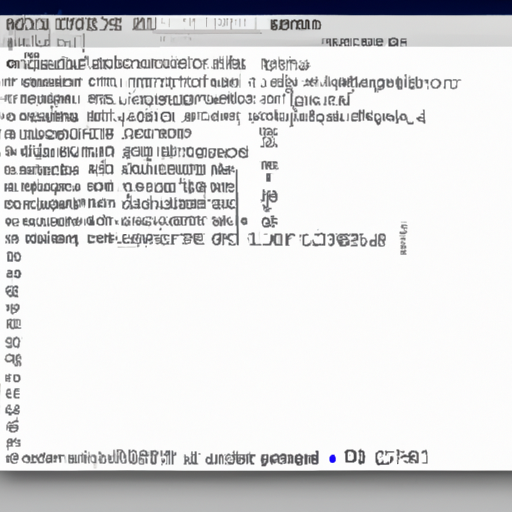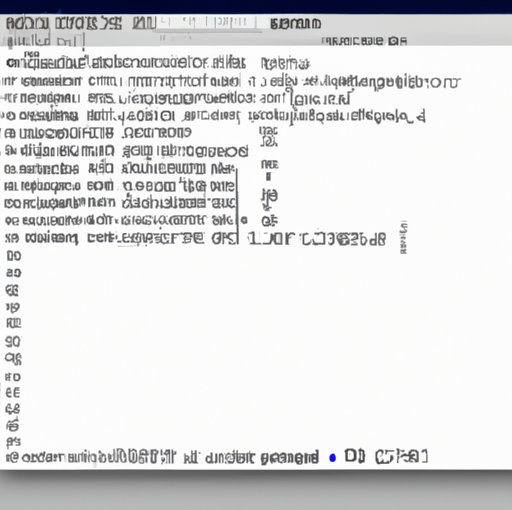-
Lucks Casino Professional Article Collection
- Introduction
- How to Use Conditional Operators to Check if a Number is Odd or Even
- Exploring the Benefits of Using Conditional Operators for Odd/Even Checking
- Understanding the Logic Behind Program to Check Odd or Even Using Conditional Operator
- Comparing Different Methods of Checking Odd or Even Numbers
- Analyzing the Efficiency of Program to Check Odd or Even Using Conditional Operator
- Troubleshooting Common Issues with Program to Check Odd or Even Using Conditional Operator
- Examining the Limitations of Program to Check Odd or Even Using Conditional Operator
- Exploring Alternative Solutions for Checking Odd or Even Numbers
- Creating a User-Friendly Interface for Program to Check Odd or Even Using Conditional Operator
- Designing an Effective Testing Strategy for Program to Check Odd or Even Using Conditional Operator
- Optimizing Performance of Program to Check Odd or Even Using Conditional Operator
- Integrating Program to Check Odd or Even Using Conditional Operator into Existing Systems
- Developing Best Practices for Maintaining Program to Check Odd or Even Using Conditional Operator
- Q&A
- Conclusion
"Simply Decide Odd or Even Numbers with a Easy Conditional Operator!"
Introduction
This program is designed to check whether or not a given number is odd and even utilizing the conditional operator. It'll take an enter from the person after which use the conditional operator to find out if the number is odd and even. This system will then output the results of the calculation. This program can be used to shortly and simply check whether or not a given number is odd and even with out having to manually calculate it.
The way to Use Conditional Operators to Check if a Quantity is Odd or Even
Conditional operators are a useful gizmo for figuring out whether or not a number is odd and even. To use them, you should first perceive the idea of modulo division. Modulo division is a mathematical operation that divides one number by one other and returns the rest. If the rest is 0, then the number is divisible by the other number and is due to this fact even. If the rest is not 0, then the number is not divisible by the other number and is due to this fact odd.
To use conditional operators to check if a number is odd and even, you can use the modulo operator (%) in mixture with an if assertion. The syntax for this might be:
if (number % 2 == 0) {
// The number is even
} else {
// The number is odd
}
On this instance, we're utilizing 2 as our divisor as a result of all even numbers are divisible by 2. If the rest of dividing our number by 2 is 0, then it'll consider to true and our code will execute the primary block of code (the “if” block). If it evaluates to false, then our code will execute the second block of code (the “else” block). This permits us to simply decide whether or not a given number is odd and even.
Exploring the Advantages of Using Conditional Operators for Odd/Even Checking
Conditional operators are a strong software for performing odd/even checking in programming. They supply a easy and environment friendly solution to decide whether or not a given number is odd and even. This article will discover the advantages of utilizing conditional operators for odd/even checking.
The first advantage of utilizing conditional operators for odd/even checking is that they're straightforward to make use of and perceive. Conditional operators permit programmers to shortly decide whether or not a given number is odd and even with out having to write down advanced code. This makes it simpler for builders to debug their applications and establish any errors that may be current. Moreover, using conditional operators can help cut back the period of time wanted to finish a activity, as they're usually quicker than other strategies of figuring out odd/even numbers.
One other benefit of utilizing conditional operators for odd/even checking is that they're extremely dependable. Since these operators depend on mathematical rules, they can be trusted to precisely decide whether or not a given number is odd and even. This eliminates the necessity for guide testing, which can be time-consuming and vulnerable to errors. Moreover, since these operators are primarily based on mathematical rules, they can be used in any programming language, making them versatile and relevant throughout a number of platforms.
Lastly, utilizing conditional operators for odd/even checking can help enhance code readability and maintainability. By counting on concise syntax, these operators make it simpler for builders to grasp the logic behind their code and make modifications as wanted with out having to rewrite massive sections of code. This helps ensure that applications live organized and straightforward to take care of over time.
In conclusion, there are numerous advantages related to utilizing conditional operators for odd/even checking in programming. These include ease of use, reliability, versatility, and improved readability and maintainability of code. As such, it is clear that these operators offer an efficient resolution for figuring out whether or not a given number is odd and even in programming purposes.
Understanding the Logic Behind Program to Check Odd or Even Using Conditional Operator
The logic behind a program to check if a number is odd and even utilizing a conditional operator is comparatively simple. A conditional operator is a type of programming assemble that evaluates an expression and returns certainly one of two attainable values relying on the results of the analysis. On this case, the expression being evaluated is whether or not or not a given number is divisible by two.
If the number is divisible by two, then it is an excellent number; in any other case, it is an odd number. To decide this, we can use the modulo operator (%), which returns the rest of a division operation. If the rest of dividing the given number by two is zero, then it is an excellent number; in any other case, it is an odd number.
Using this logic, we can create a program to check if a given number is odd and even utilizing a conditional operator. The code would possibly look one thing like this:
if (number % 2 == 0) {
// Quantity is even
} else {
// Quantity is odd
}
On this code, we're utilizing the modulo operator to guage whether or not or not the given number divided by two has a the rest of zero. In that case, then it have to be an excellent number; in any other case, it have to be an odd number. This easy program can be used to shortly and simply decide whether or not or not any given number is odd and even.
Evaluating Completely different Strategies of Checking Odd or Even Numbers
In relation to figuring out whether or not a number is odd and even, there are a number of strategies that can be used. This article will evaluate and distinction the completely different approaches to find out which one is only.
The primary methodology is to make use of the modulo operator. The modulo operator divides two numbers and returns the rest. If the rest is zero, then the number is even; if the rest is one, then the number is odd. This methodology is easy and easy, however it requires some primary information of arithmetic.
The second methodology entails utilizing bitwise operators. Bitwise operators are used to govern particular person bits in a binary illustration of a number. By performing a bitwise AND operation on a number with one, it can be decided whether or not the least important bit (LSB) of that number is set or not. If the LSB is set, then the number is odd; if it’s not set, then the number is even. This methodology requires more information of pc science than the modulo operator strategy, however it can be more environment friendly in certain instances.
The third methodology entails utilizing an if-else assertion. An if-else assertion checks whether or not a situation is true or false and executes code accordingly. On this case, an if-else assertion can be used to check whether or not a given number is divisible by two or not; if it’s divisible by two, then it’s even; in any other case, it’s odd. This strategy requires some information of programming however can be very helpful when coping with massive numbers or advanced calculations.
In conclusion, every of those strategies has its personal benefits and drawbacks relying on what it's good to do with them. The modulo operator strategy is easy and easy however requires some primary information of arithmetic; bitwise operators require more information of pc science however can be more environment friendly in certain instances; and an if-else assertion requires some information of programming however can be very helpful when coping with massive numbers or advanced calculations.
Analyzing the Effectivity of Program to Check Odd or Even Using Conditional Operator
The effectivity of a program to check odd and even utilizing a conditional operator can be analyzed by analyzing the time complexity of the algorithm. Time complexity is a measure of how lengthy it takes for an algorithm to finish its activity. On this case, the duty is to find out whether or not a given number is odd and even.
The time complexity of this algorithm is O(1), which implies that it takes fixed time to execute whatever the measurement of the enter. This makes it an environment friendly algorithm because it doesn't require extra processing time when coping with bigger numbers. The algorithm works by utilizing a conditional operator to match the rest of the number divided by two with zero. If the rest is zero, then the number is even; in any other case, it is odd. This comparability requires just one operation and thus has a continuing time complexity.
General, this algorithm is environment friendly in terms of its time complexity and can be used to shortly decide whether or not a given number is odd and even. It requires just one operation and thus has a continuing time complexity, making it appropriate to be used in purposes the place pace and effectivity are vital issues.
Troubleshooting Widespread Points with Program to Check Odd or Even Using Conditional Operator
When utilizing a conditional operator to check if a number is odd and even, it is vital to ensure that the code is written accurately. If the code is not written accurately, it can result in surprising outcomes. Listed here are some frequent points that may come up when utilizing a conditional operator to check if a number is odd and even, and tips on how to troubleshoot them.




1. Incorrect Syntax: One of the frequent points when utilizing a conditional operator is incorrect syntax. This can be attributable to typos, lacking parentheses, or incorrect operators. To troubleshoot this problem, review the code line-by-line and search for any errors in syntax.
2. Incorrect Logic: One other frequent problem when utilizing a conditional operator is incorrect logic. This can be attributable to incorrect comparability operators or incorrect use of logical operators. To troubleshoot this problem, review the code line-by-line and search for any errors in logic.
3. Incorrect Output: A 3rd frequent problem when utilizing a conditional operator is incorrect output. This can be attributable to incorrect comparability operators or incorrect use of logical operators. To troubleshoot this problem, review the code line-by-line and search for any errors in logic that may very well be inflicting the inaccurate output. Moreover, take a look at the code with completely different inputs to ensure that it produces the anticipated output for all instances.
By following these steps, you need to be capable of establish and resolve any points along with your program to check if a number is odd and even utilizing a conditional operator.
Analyzing the Limitations of Program to Check Odd or Even Using Conditional Operator
The usage of conditional operators is a well-liked methodology for figuring out whether or not a number is odd and even. Nevertheless, this strategy has certain limitations that must be considered.
First, the conditional operator can solely be used to check numbers which are integers. Which means that it can't be used to check fractions or decimals. Moreover, the operator can't be used to check unfavourable numbers, as it'll all the time return false when given a unfavourable number.
Second, the conditional operator can solely decide if a number is odd and even; it can't decide if a number is prime or composite. Which means that if it's good to decide whether or not a number is prime or composite, you will want to make use of one other methodology.
Lastly, the conditional operator can solely be used to check one number at a time. If it's good to check a number of numbers directly, you will want to make use of an alternate strategy reminiscent of looping by every number and checking it individually.
General, whereas the conditional operator is an efficient approach of figuring out whether or not a number is odd and even, its limitations must be taken into consideration when deciding which strategy to make use of on your program.
Exploring Various Options for Checking Odd or Even Numbers
In relation to figuring out whether or not a number is odd and even, there are a number of different options that can be explored. These options can be used in varied programming languages and can present a more environment friendly approach of checking for odd and even numbers.
The primary different resolution is to make use of the modulo operator. This operator returns the rest of a division operation and can be used to find out if a number is odd and even. If the results of the modulo operation is 0, then the number is even; if it is 1, then the number is odd.
One other different resolution is to make use of bitwise operators. Bitwise operators let you manipulate particular person bits inside a number and can be used to check for odd and even numbers. For instance, when you apply an AND operator with 1 on an integer, it'll return 1 if the final little bit of the integer is 1 (odd) and 0 if it’s 0 (even).
Lastly, one other different resolution entails utilizing bit shifting operations. Bit shifting operations contain shifting all the bits in a number by one place both left or proper. In case you shift all the bits in an integer one place to the precise after which evaluate it with itself, you're going to get 0 if it’s an excellent number and 1 if it’s an odd number.
These are simply among the different options that can be used for checking odd and even numbers. Every resolution has its personal benefits and drawbacks, so it’s vital to contemplate which one would greatest fit your needs earlier than implementing any of them into your code.
Making a Consumer-Pleasant Interface for Program to Check Odd or Even Using Conditional Operator
Making a person-pleasant interface for a program to check odd and even numbers utilizing the conditional operator is an vital activity. This article will present step-by-step directions on tips on how to create such an interface.
First, you will want to outline the conditional operator. The conditional operator is a type of programming language that permits you to evaluate two values and return a end result primarily based on the comparability. On this case, we will likely be utilizing the conditional operator to find out if a number is odd and even.
Subsequent, you will want to create a person interface on your program. This can be completed by making a type with two enter fields: one for the number to be checked and one for the results of the check. You also needs to include a button that can permit customers to submit their enter and obtain the results of the check.
After getting created your person interface, you will want to write down code that makes use of the conditional operator to find out if a number is odd and even. To do that, you will want to match the number entered by the person with 0 (zero). If the number is equal to 0 (zero), then it is an excellent number; in any other case, it is an odd number.
Lastly, you need to add code that shows the results of the check in your person interface. This can be completed by displaying both “odd” or “even” relying on what was decided by your code.
By following these steps, you can simply create a person-pleasant interface for a program that checks odd and even numbers utilizing the conditional operator.
Designing an Efficient Testing Technique for Program to Check Odd or Even Using Conditional Operator
Testing is an vital a part of the software growth course of, and it is important to ensure {that a} program features as anticipated. This is very true when coping with applications that use conditional operators, reminiscent of a program to check if a number is odd and even. To ensure that such a program works accurately, an efficient testing technique have to be employed.
Step one in designing an efficient testing technique for this type of program is to create take a look at instances. Check instances ought to cowl all attainable situations, together with each odd and even numbers, optimistic and unfavourable numbers, and 0. Moreover, it is vital to contemplate edge instances reminiscent of the utmost and minimal values for the info type getting used. As soon as these take a look at instances have been created, they can be used to validate this system’s output towards the anticipated outcomes.
The following step in designing an efficient testing technique is to create automated exams. Automated exams are scripts that can be run repeatedly to ensure that this system produces constant outcomes every time it is executed. These exams ought to include all the take a look at instances created earlier, in addition to any extra situations that may come up throughout regular utilization of this system. Automated exams are particularly helpful for applications that use conditional operators as a result of they can shortly establish any points with how the operator is getting used.
Lastly, guide testing also needs to be carried out on this system. Handbook testing entails working by every of the take a look at instances manually and verifying that the output matches what was anticipated. This type of testing can help establish any points with how the code was written or the way it interacts with other elements of the system. Moreover, guide testing can help uncover any surprising conduct or bugs in the code that may not have been recognized by automated exams.
By following these steps and creating an efficient testing technique for a program utilizing conditional operators, builders can ensure that their applications work accurately and produce dependable outcomes each time they're executed.
Optimizing Efficiency of Program to Check Odd or Even Using Conditional Operator
Efficiency optimization is an vital side of programming, particularly when coping with massive datasets. One solution to optimize the efficiency of a program is to make use of conditional operators. Conditional operators are used to check if a given worth is true or false and can be used to find out whether or not a number is odd and even. This article will focus on tips on how to optimize the efficiency of a program that checks if a number is odd and even utilizing conditional operators.
Step one in optimizing the efficiency of this system is to establish which elements of the code are taking over essentially the most time. This can be completed by utilizing a profiler, which is able to present information about which traces of code are taking over essentially the most time. As soon as these traces have been recognized, they can be optimized by changing them with more environment friendly code.
The following step is to exchange any inefficient code with more environment friendly code utilizing conditional operators. For instance, as an alternative of writing an if-else assertion to check if a number is odd and even, one might use a ternary operator (?:) which would cut back the quantity of code wanted and enhance efficiency. The ternary operator works by evaluating an expression and returning one worth if it’s true and one other worth if it’s false. On this case, it will return “odd” if the expression evaluates to true and “even” if it evaluates to false.
One other solution to optimize efficiency is by decreasing redundant calculations. For instance, as an alternative of checking for each odd and even numbers in separate statements, one might mix them into one assertion utilizing logical operators (&& or ||). This would cut back the quantity of calculations wanted and enhance efficiency.
Lastly, one also needs to take into account caching values which are used a number of times in order to avoid pointless calculations. Caching values can help enhance efficiency by decreasing the period of time spent on calculations which have already been completed earlier than.
By following these steps, one can optimize the efficiency of a program that checks for odd and even numbers utilizing conditional operators. Optimizing applications can help make them run quicker and more effectively, ensuing in higher total efficiency for customers.
Integrating Program to Check Odd or Even Using Conditional Operator into Current Systems
Integrating a program to check odd and even numbers into present systems can be a helpful addition for a lot of purposes. This program can be simply built-in utilizing the conditional operator, which is a strong software for making selections primarily based on certain circumstances. The conditional operator evaluates an expression and returns certainly one of two values relying on whether or not the expression is true or false.
To combine this program into present systems, step one is to outline the situation that can decide whether or not a number is odd and even. This situation must be written in the type of an expression that evaluates to both true or false. For instance, if we need to check if a number is even, we can use the modulo operator (%), which returns the rest of a division operation. If the rest is 0, then the number is even; in any other case, it is odd.
As soon as the situation has been outlined, it can be used with the conditional operator to return both “odd” or “even” relying on whether or not the expression evaluates to true or false. For instance:
end result = (number % 2 == 0) ? "even" : "odd";
This assertion will assign both “even” or “odd” to the variable end result relying on whether or not number % 2 equals 0 (true) or not (false).
By integrating this program into present systems utilizing the conditional operator, builders can shortly and simply add performance for checking odd and even numbers with out having to write down extra code. This makes it simpler to take care of and replace present systems whereas additionally offering more flexibility for future growth.
Growing Finest Practices for Sustaining Program to Check Odd or Even Using Conditional Operator
When writing code to check if a number is odd and even, it is vital to develop greatest practices for sustaining this system. This article will present an summary of greatest practices for utilizing the conditional operator to check if a number is odd and even.
Step one in creating greatest practices for utilizing the conditional operator to check if a number is odd and even is to ensure that the code is nicely-structured and straightforward to read. This can be completed by breaking apart the code into smaller, more manageable chunks and utilizing significant variable names. Moreover, feedback must be used all through the code to elucidate what every part of code does.
The second step in creating greatest practices for utilizing the conditional operator to check if a number is odd and even is to make use of correct syntax. This consists of guaranteeing that every one parentheses, brackets, and braces are correctly closed and that every one operators are used accurately. Moreover, it is vital to make sure that every one variables are declared earlier than they're used in this system.
The third step in creating greatest practices for utilizing the conditional operator to check if a number is odd and even is to check this system completely earlier than releasing it into manufacturing. This consists of testing with completely different enter values and ensuring that every one attainable outcomes are dealt with accurately. Moreover, it is vital to make sure that any errors encountered throughout testing are logged and addressed appropriately.
By following these greatest practices when writing code to check if a number is odd and even utilizing the conditional operator, builders can ensure that their applications are nicely-structured, straightforward to read, and free from errors. Moreover, thorough testing can help establish any potential points earlier than they turn out to be issues in manufacturing environments.
Q&A
Q1: What is a conditional operator?
A1: A conditional operator is a type of operator that performs a comparability between two values and returns a Boolean worth (true or false) primarily based on the results of the comparability. It is generally used in programming to manage the circulate of execution primarily based on certain circumstances.
Conclusion
This system to check odd and even utilizing conditional operator is a easy and efficient solution to decide whether or not a number is odd and even. It is straightforward to grasp and use, and can be used in many alternative conditions. This program can be used to shortly establish whether or not a number is odd and even with out having to carry out any calculations.



